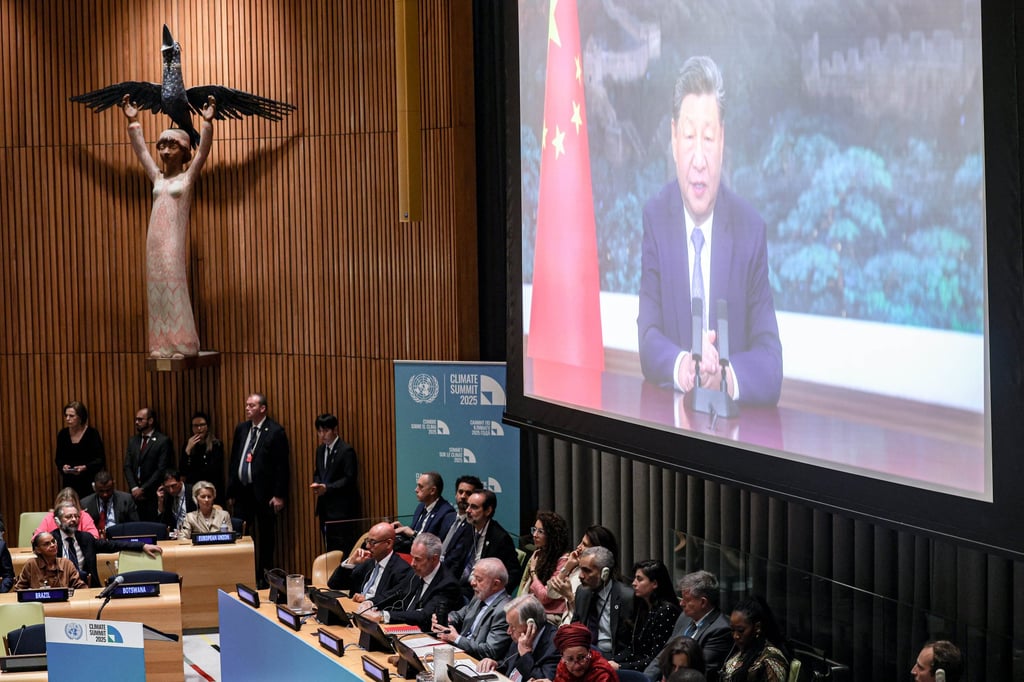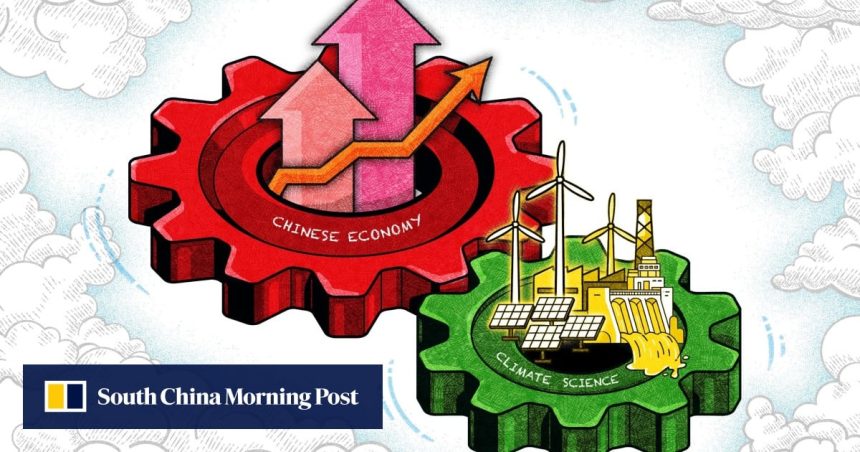China and the United States often find themselves sharply at odds on policy, but nowhere is the divide between the rival powers more striking than on climate change – as their leaders made clear at last month’s United Nations General Assembly in New York.
Even as US President Donald Trump dismissed climate change as “the greatest con job ever perpetrated on the world”, his Chinese counterpart, Xi Jinping, used the moment to unveil Beijing’s latest strategies for addressing the issue.
Xi said China sought to cut its emissions by 7 to 10 per cent from peak levels by 2035, while increasing the share of non-fossil fuels in its energy mix to over 30 per cent, with a focus on more wind and solar power capacity.
The transition to green and low-carbon energy was “the trend of the time”, Xi said, while urging the international community to “stay focused on the right direction”.

As climate change intensifies, Beijing is channelling scientific insights to pursue an ambitious transformation of China’s infrastructure.
Driven by data showing rising risks of floods, heatwaves and extreme weather, Chinese policymakers are re-engineering urban landscapes with an emphasis on resilience – to meet the challenges of a hotter, wetter and more unpredictable climate future.

Leave a Reply